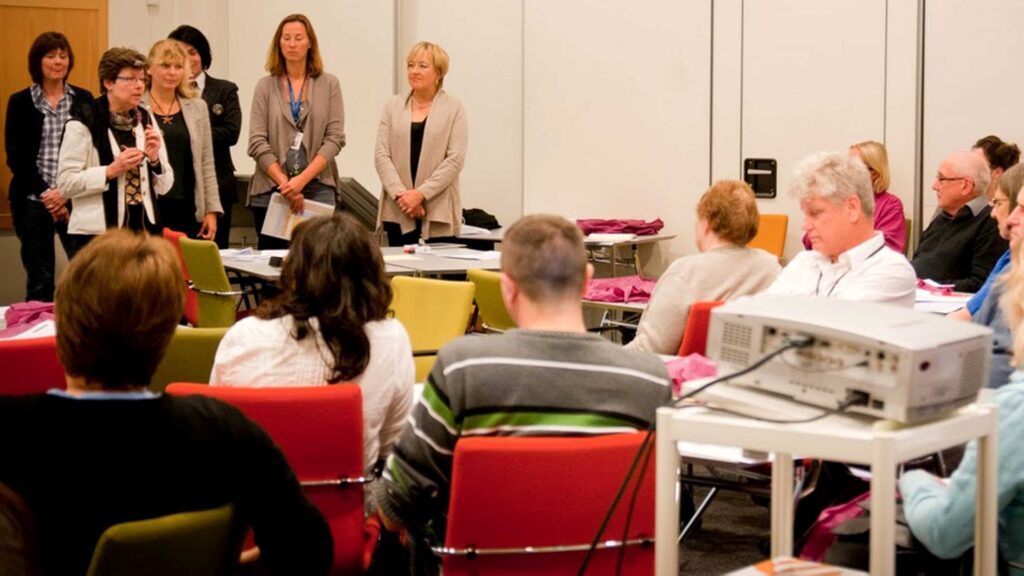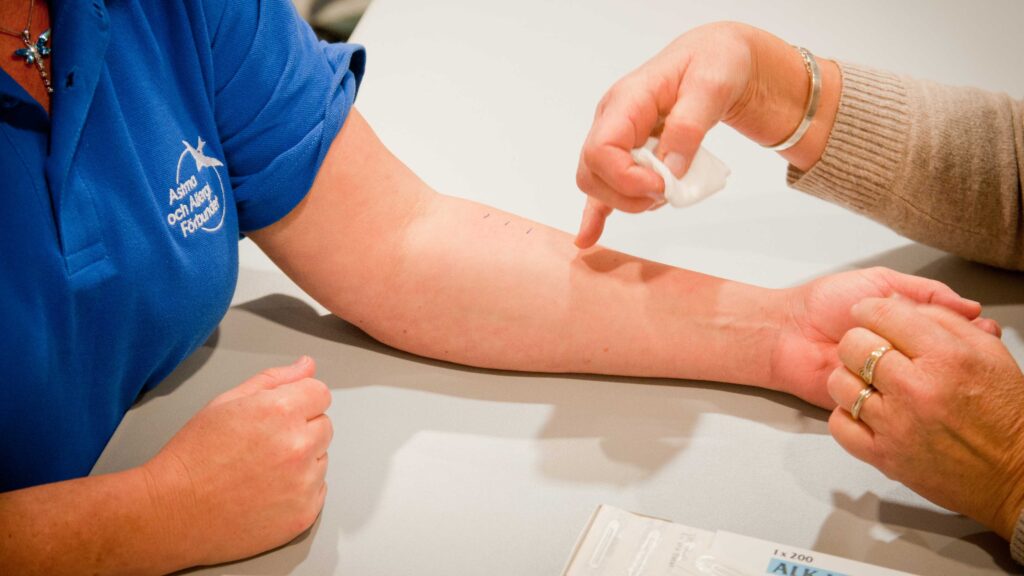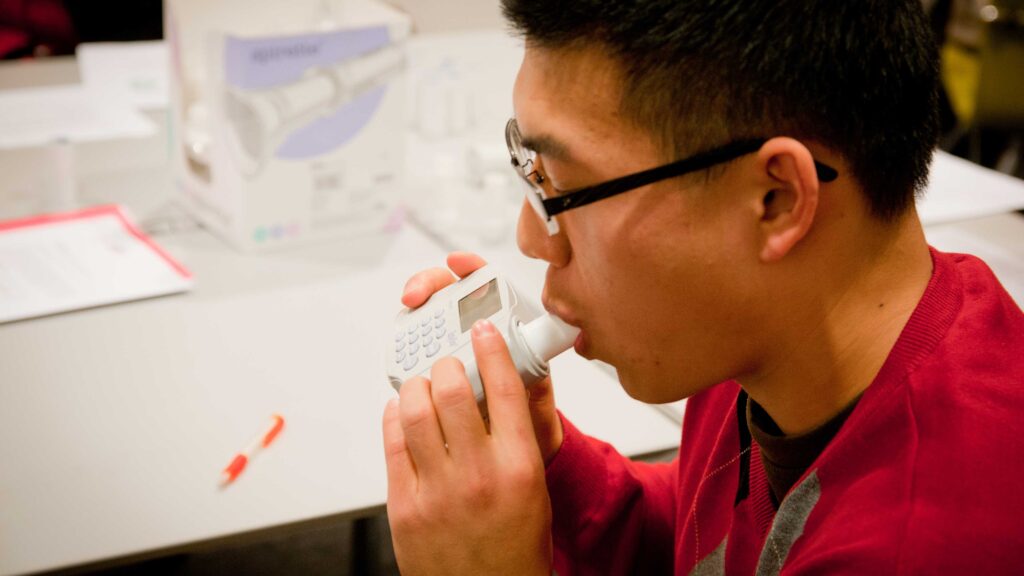How do I prevent my kids and myself from developing asthma? Is it something genetic? How can researchers and patients work together in order to find better treatments? These were a few questions discussed at a dialogue event on 19th October, organised by VA, the Karolinska Institutet and the Swedish Asthma and Allergy Association.

The public met with five asthma and allergy researchers that answered questions about the diseases and invited participants to take some medical tests for asthma and allergy patients.
A film was shown presenting current research studies about asthma and allergies. Researchers have revealed that children living in the countryside have a lower risk of suffering from asthma. This is probably due to the fact that kids from the countryside are exposed to much more different bacteria and dust than children growing up in a city. Is it that country air makes healthy or too much hygiene makes sick?
“Asthma is a very complicated and diversified human disease. The causes are complex and not yet fully detected” explained Alexandra Ek, asthma and allergy researcher at the Karolinska Institutet.
Pollens, pets and air pollution
It is proven that external factors such as air pollution, viral respiratory infections and allergic reactions against pollens or pets can cause asthma. Particularly kids suffer from external allergic asthma.

“But you can also develop asthma when you are grown-up. Children’s asthma often disappears after some time while adult’s not!” said Gunilla Hedlin, chief physician at the Astrid Lindgren Children’s Hospital in Stockholm.
Asthma can also be genetically determined; then you have a much higher risk for suffering from asthma sometime.
Allergy researchers Anne Renström and Britt-Marie Sundblad got on to explained that many adults develop asthma from their working environment:
“If you get asthma at your working place, it will last. The only way to get rid of it is to change job.”
Kerstin Sundell, nurse and researcher at the Karolinska Institute, added that it is very important for asthma and allergy sufferers to inform themselves about the working environment before taking a job.
Avoid stress and smoking
Participants were invited to discuss in smaller groups how researchers and asthma and allergy patients can work closer together and also how best to prevent asthma and allergies.
The practical tests that interspersed the discussions were highly frequented. Participants could undergo a quick skin-prick allergy test or measure their airways and breathing capacity.

In the concluding plenary session the Karolinska researchers recommended us all to avoid stress and allergy triggering animals and food as well as smoking, in order to prevent asthma and allergy symptoms. Physical exercise, vaccine against influenza and even wearing a mask to protect oneself from air pollution were all methods recommended. The importance of informing society and disseminating scientific knowledge about asthma and allergies was also stressed.
The event was part of the European Project ComScience which tries to define the best ways of communicating science and health related research to the general public. At the start and the end of the meeting, participants were asked to fill in questionnaires in order to evaluate the event and measure the learning experience. The aim of the project is to develop best practice on how to communicate research.
/Heidi Armbruster-Domeyer, VA

Regarding ”Asthma tests and research discussions attracted the public” are very interesting explanations in the true laws of heredity, Danciu laws of heredity-four new laws, available free at http://independent.academia.edu/MarinDanciu
Regarding ”Asthma tests and research discussions attracted the public” are very interesting explanations in the true laws of heredity, Danciu laws of heredity-four new laws, available free at http://independent.academia.edu/MarinDanciu